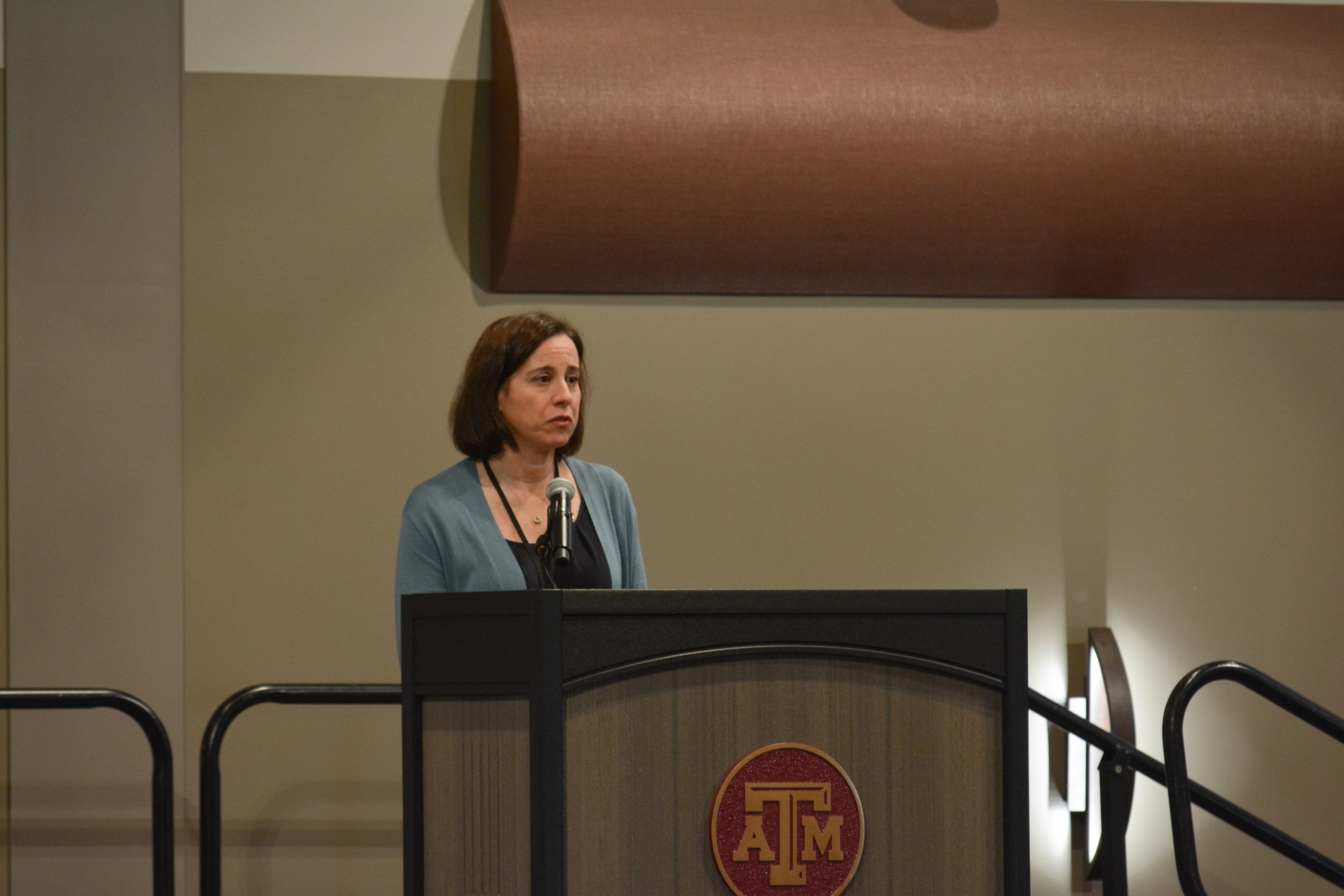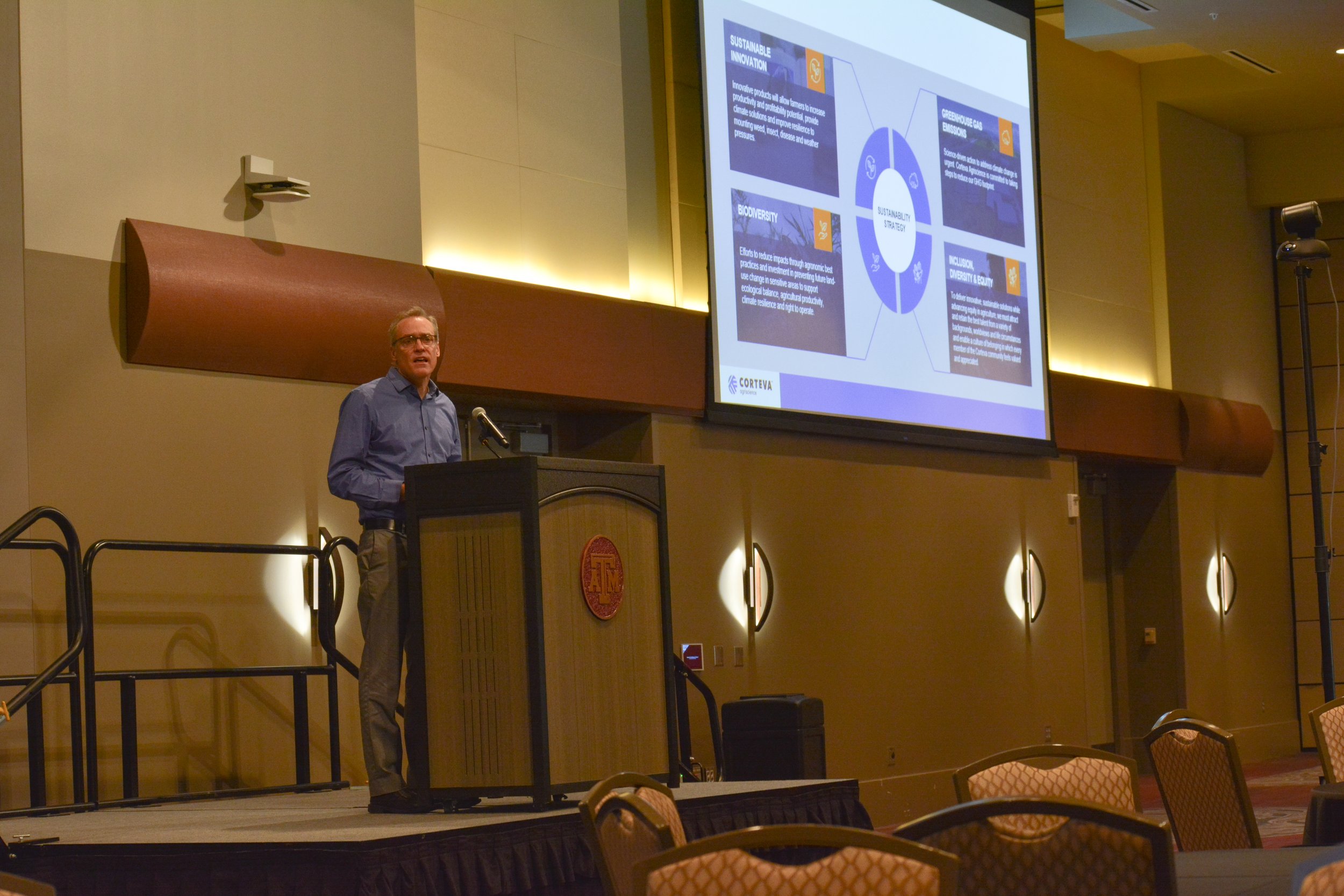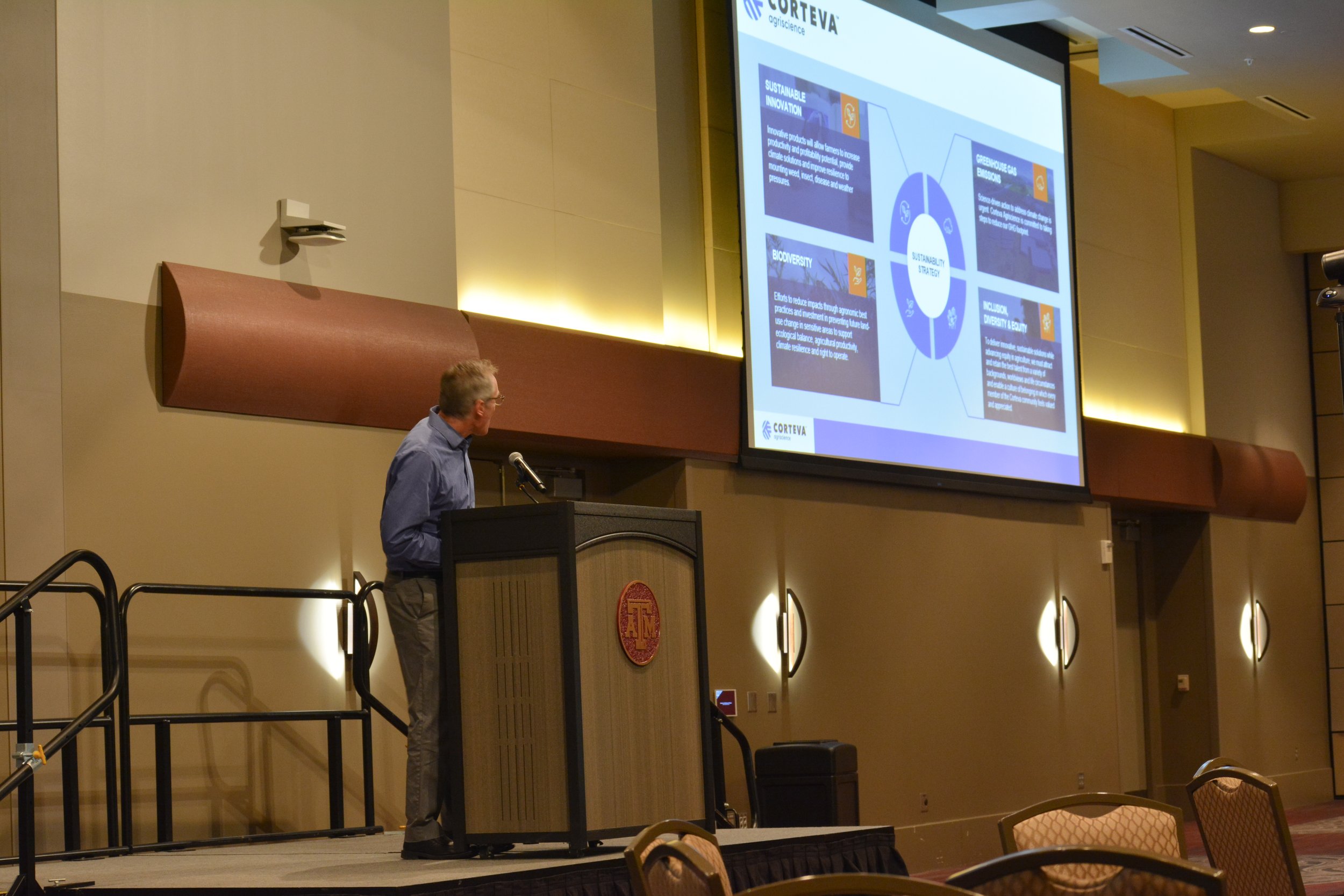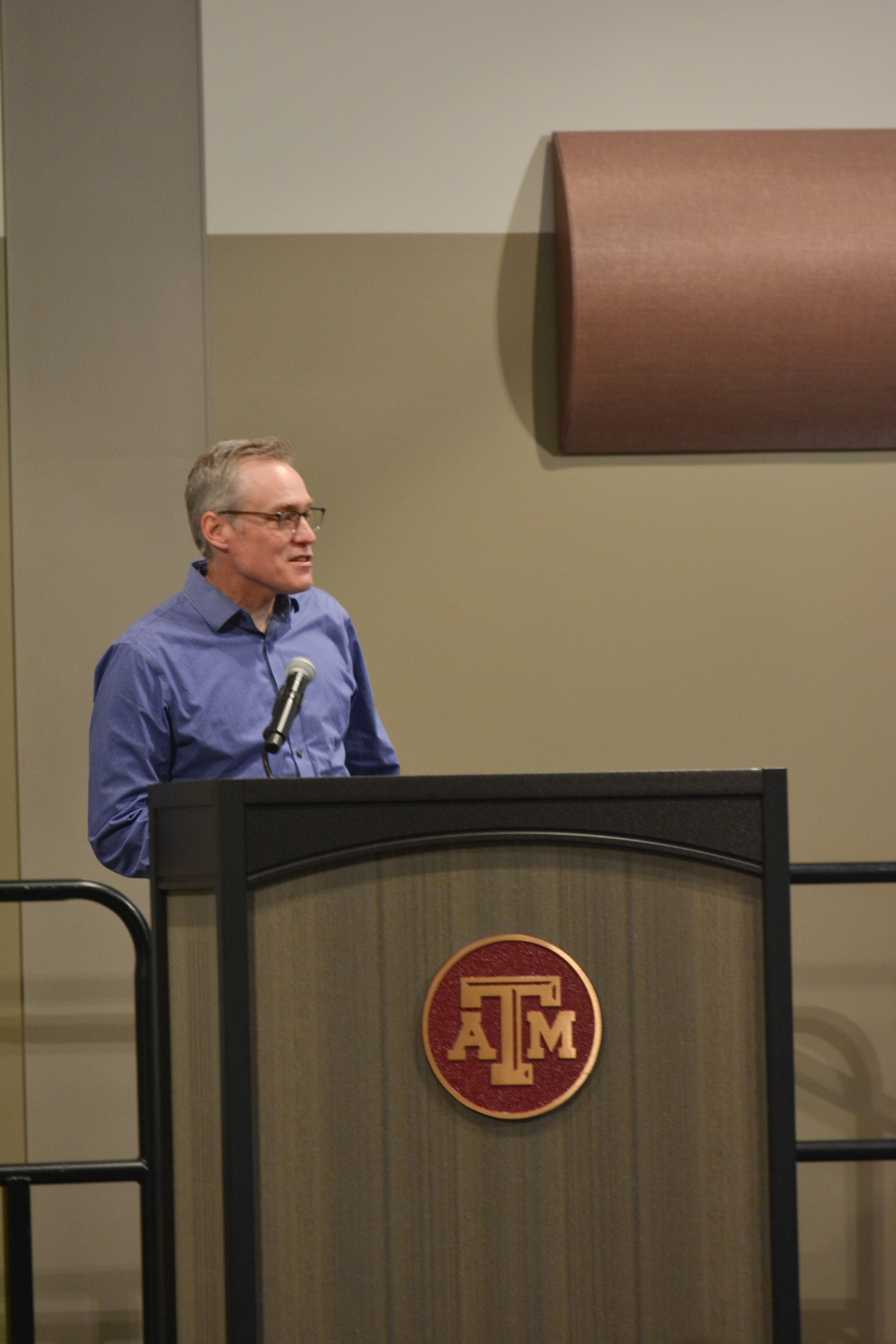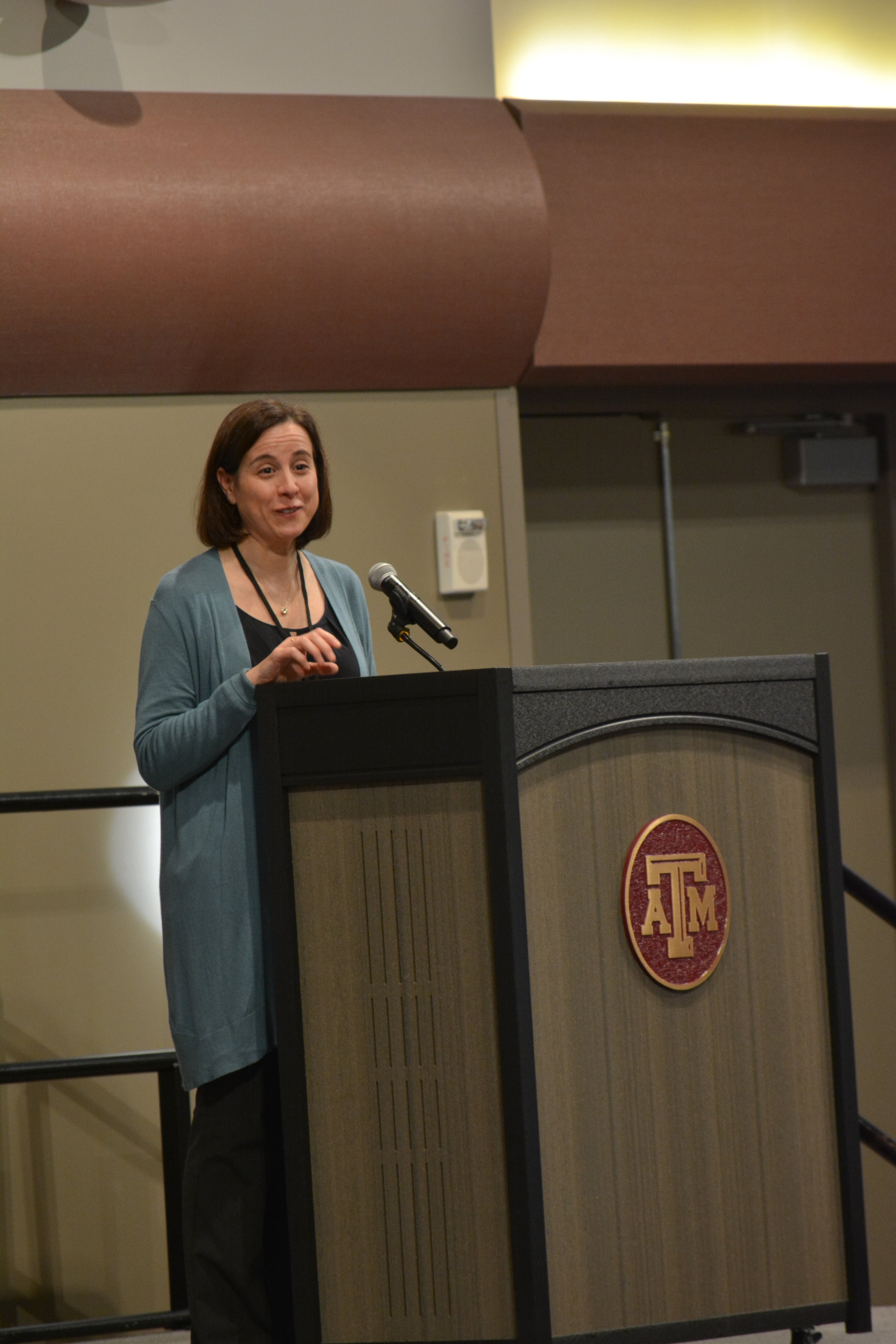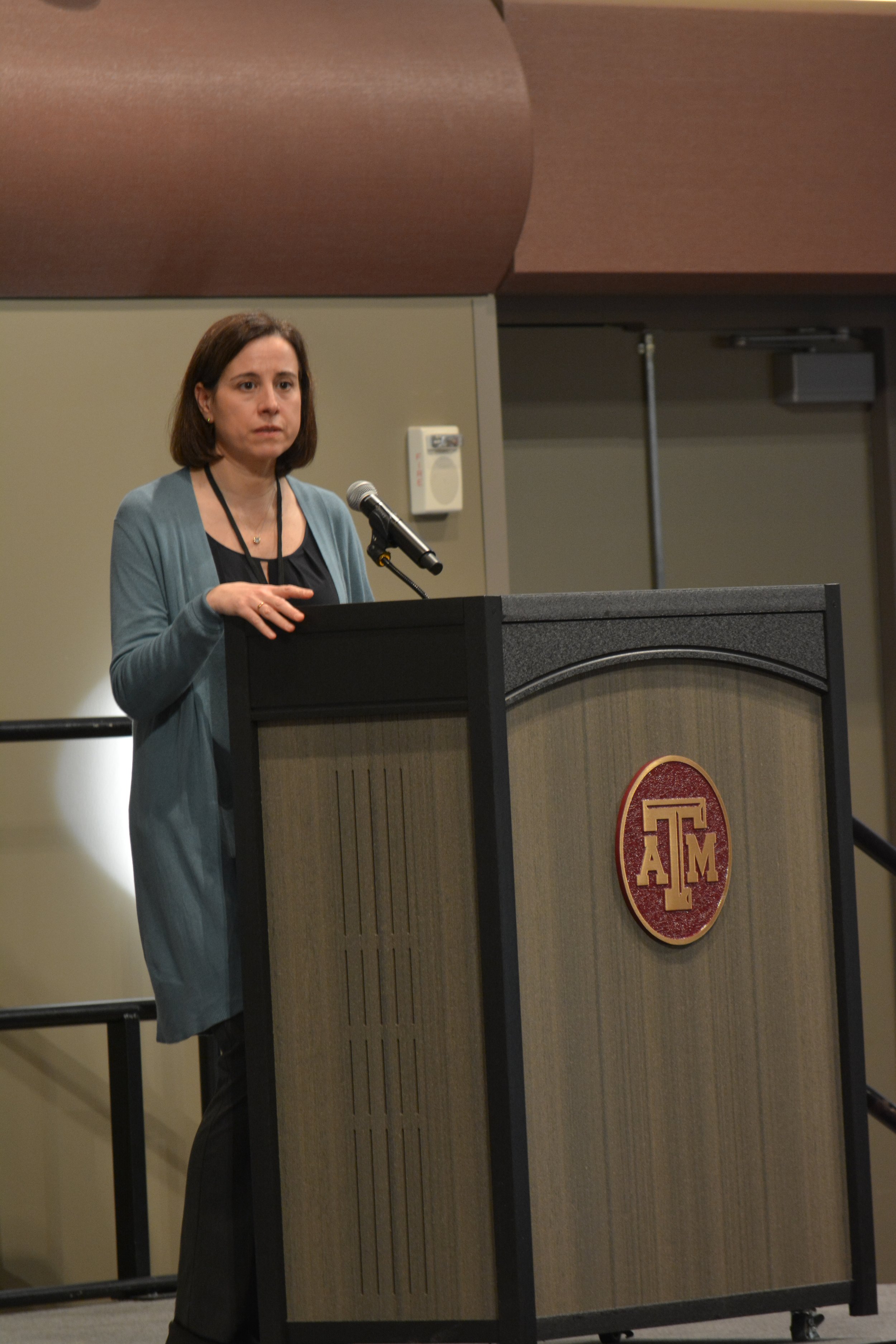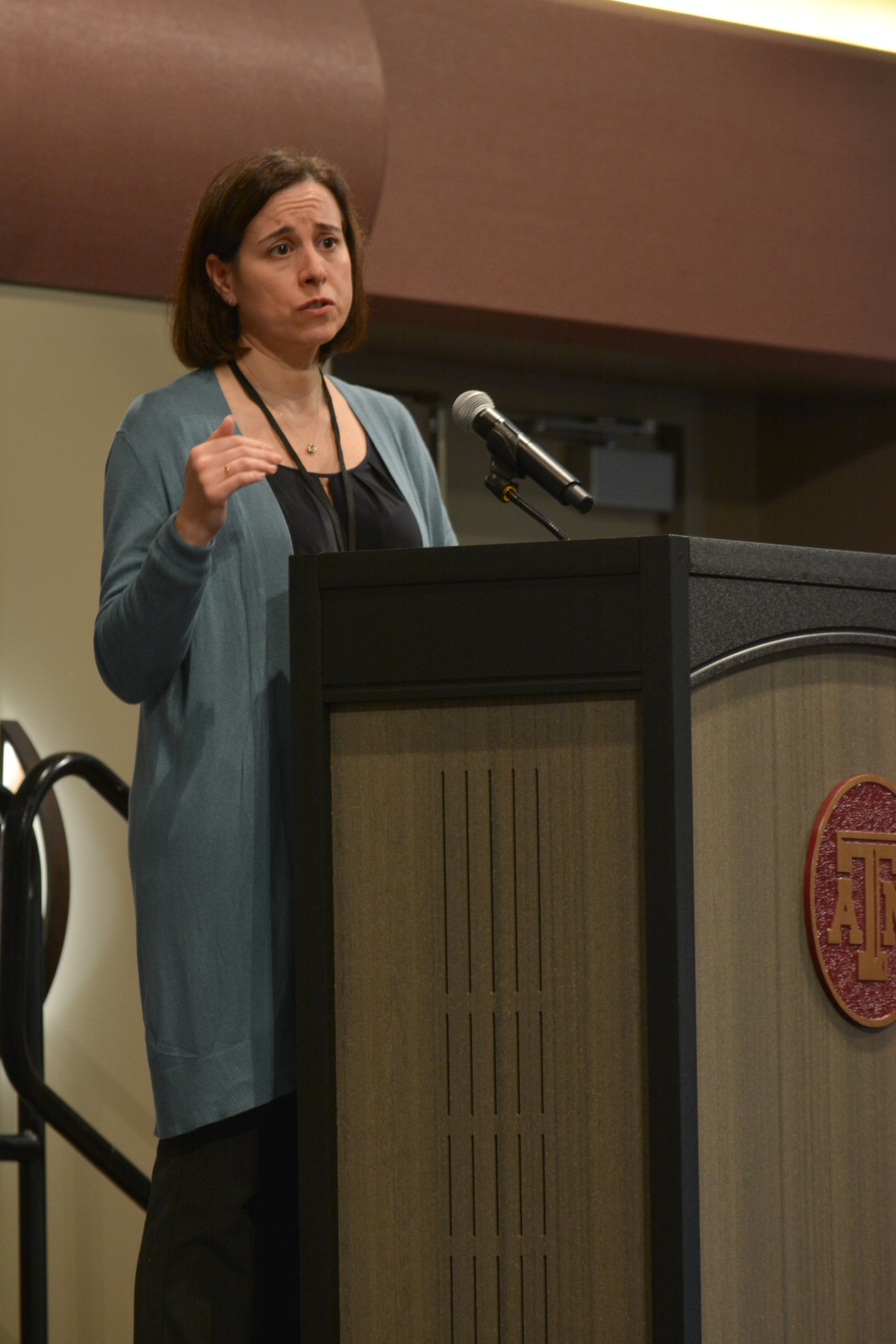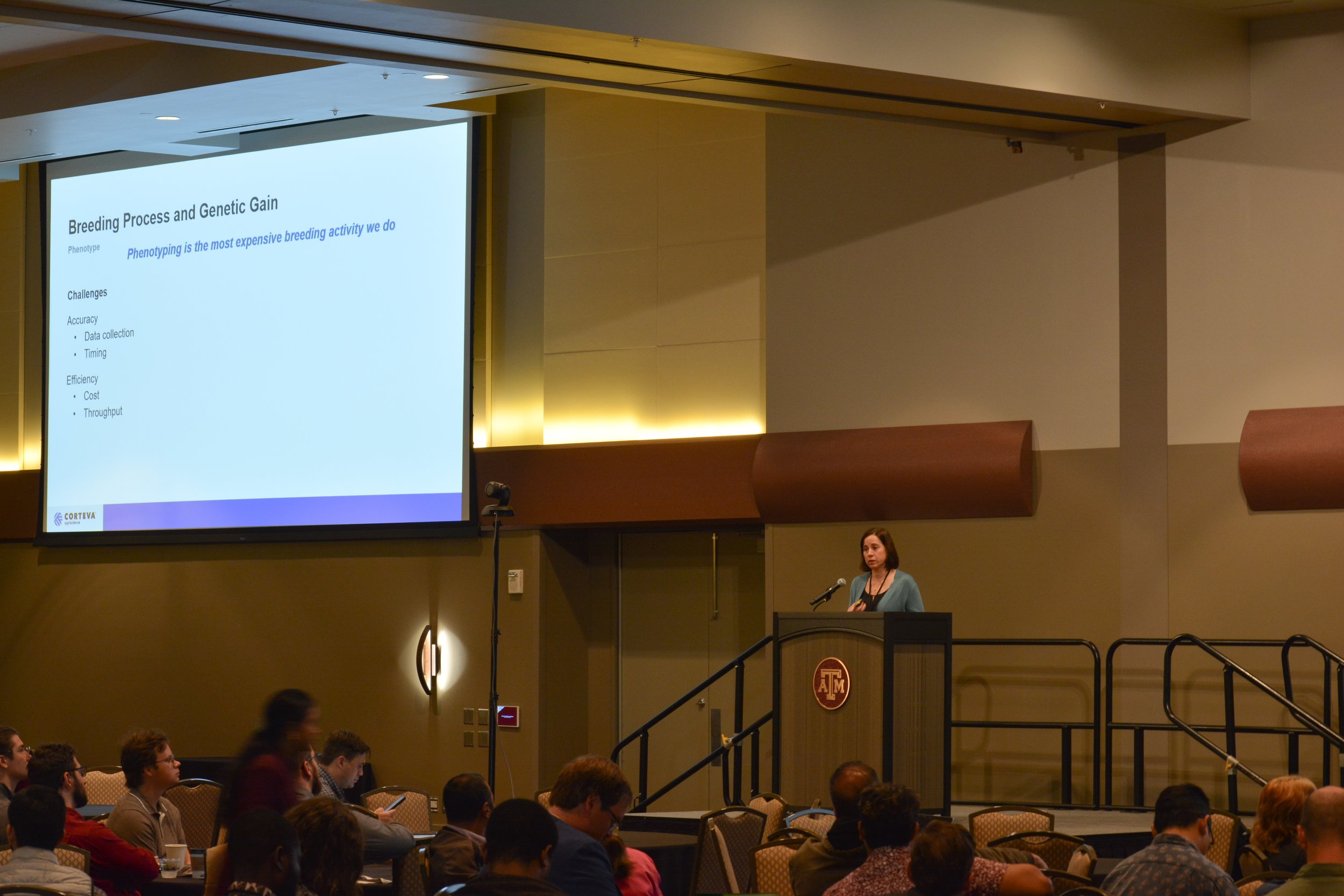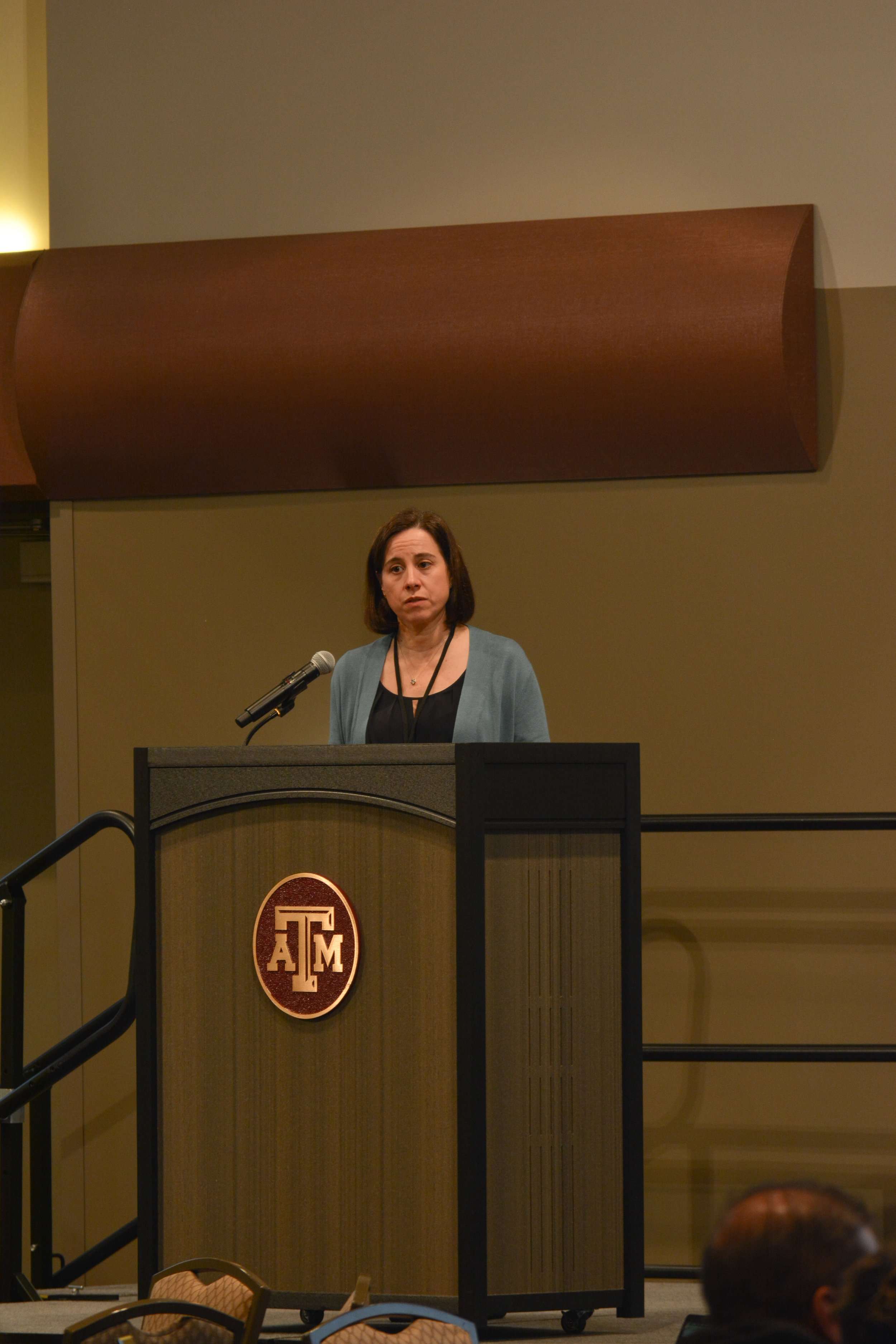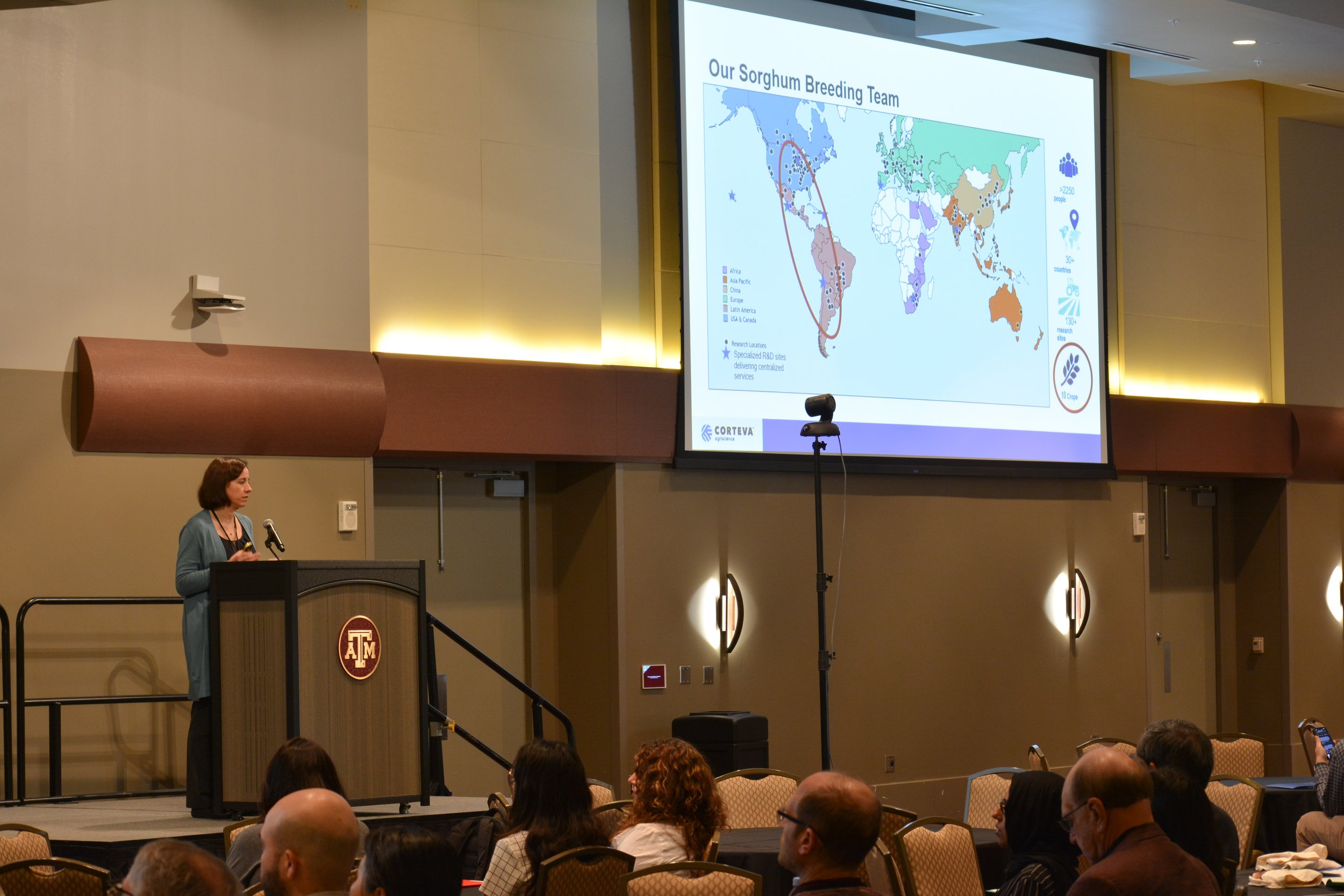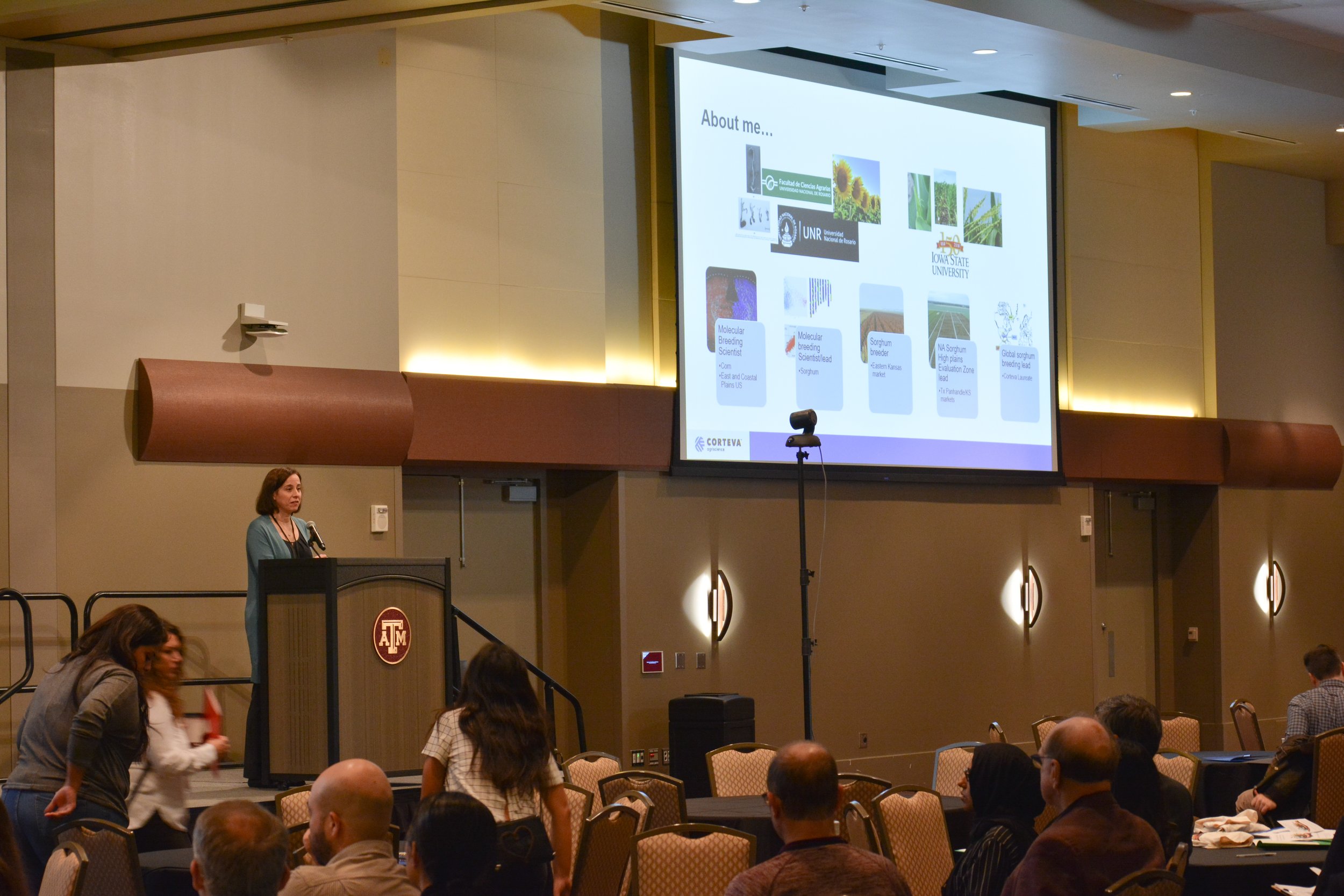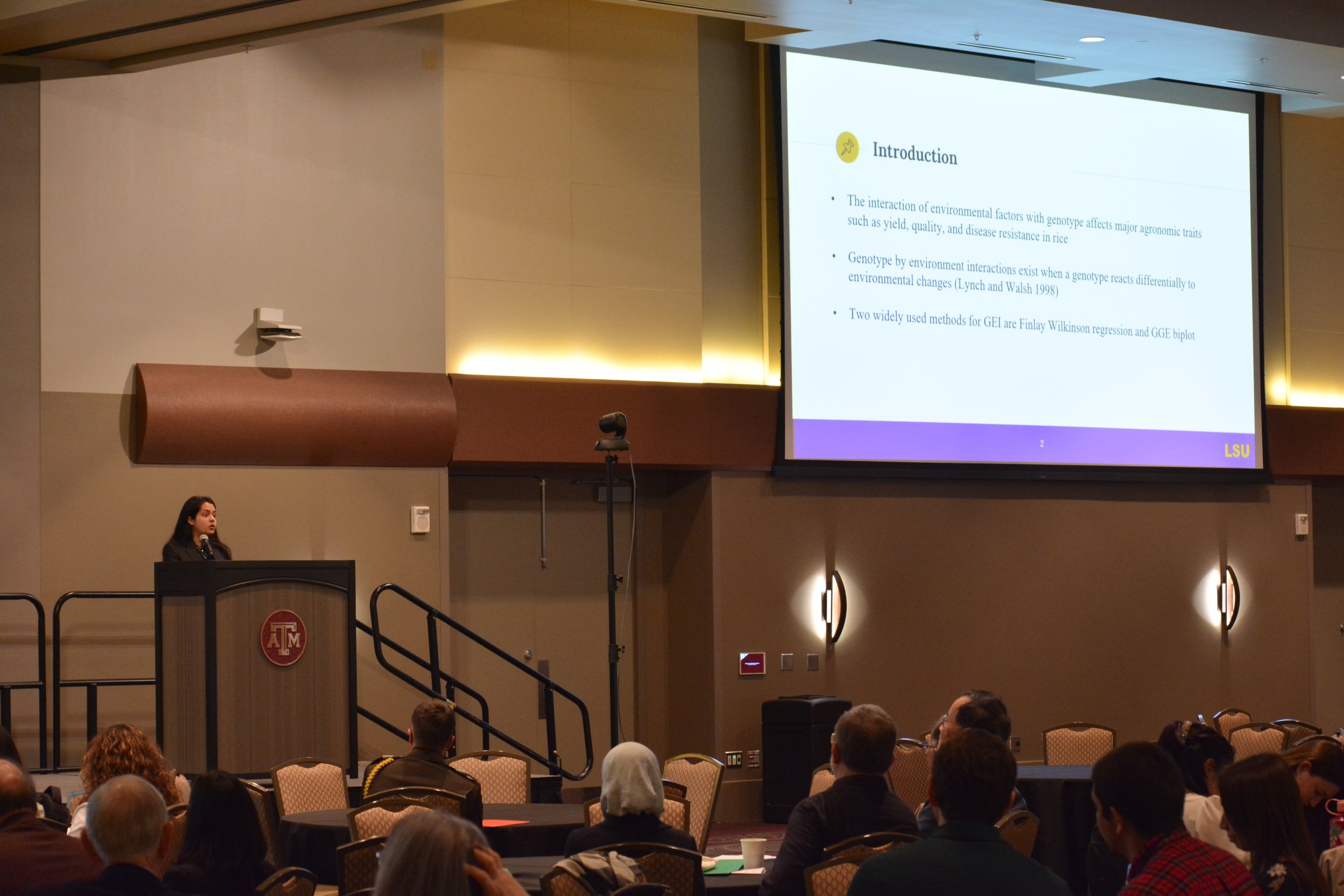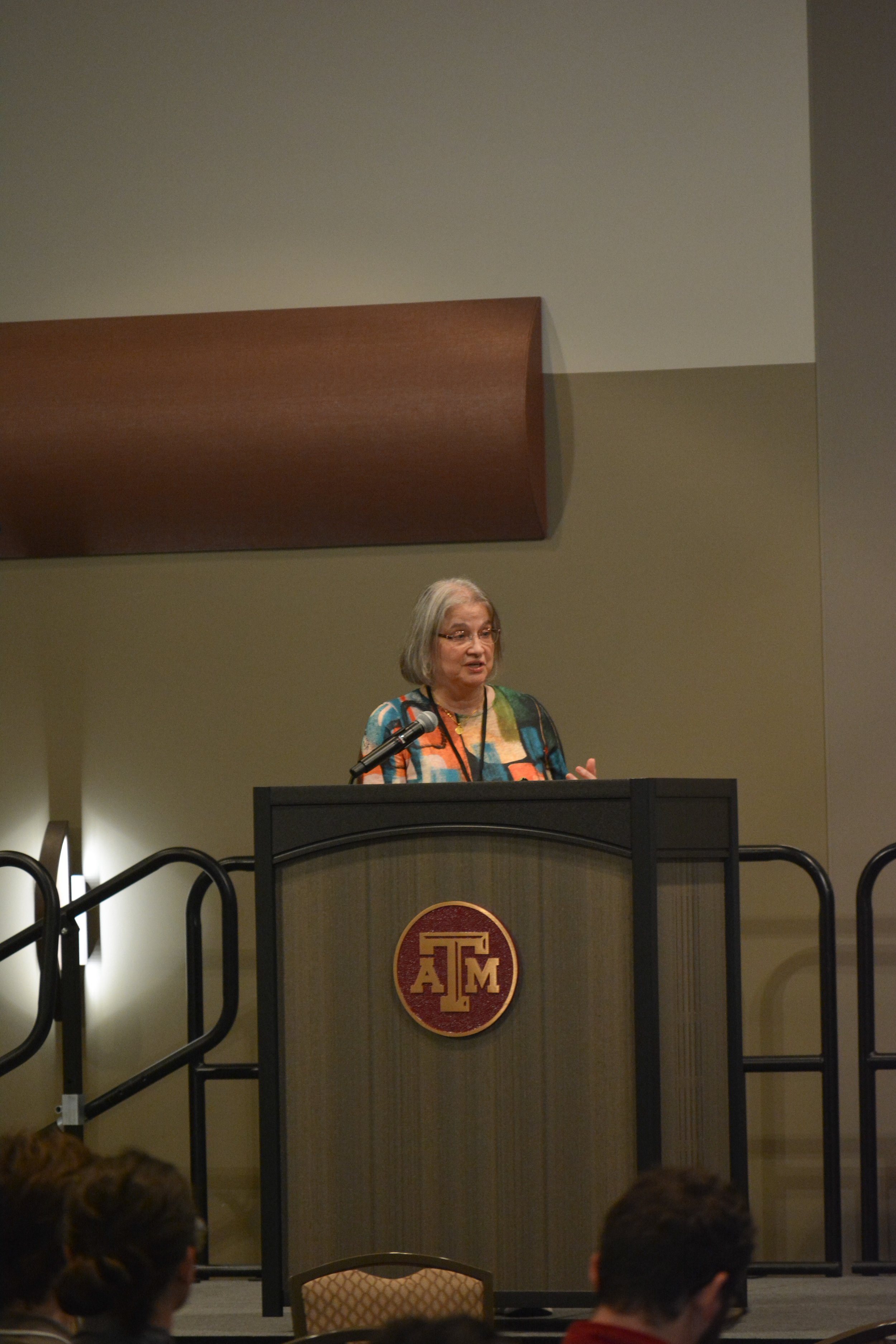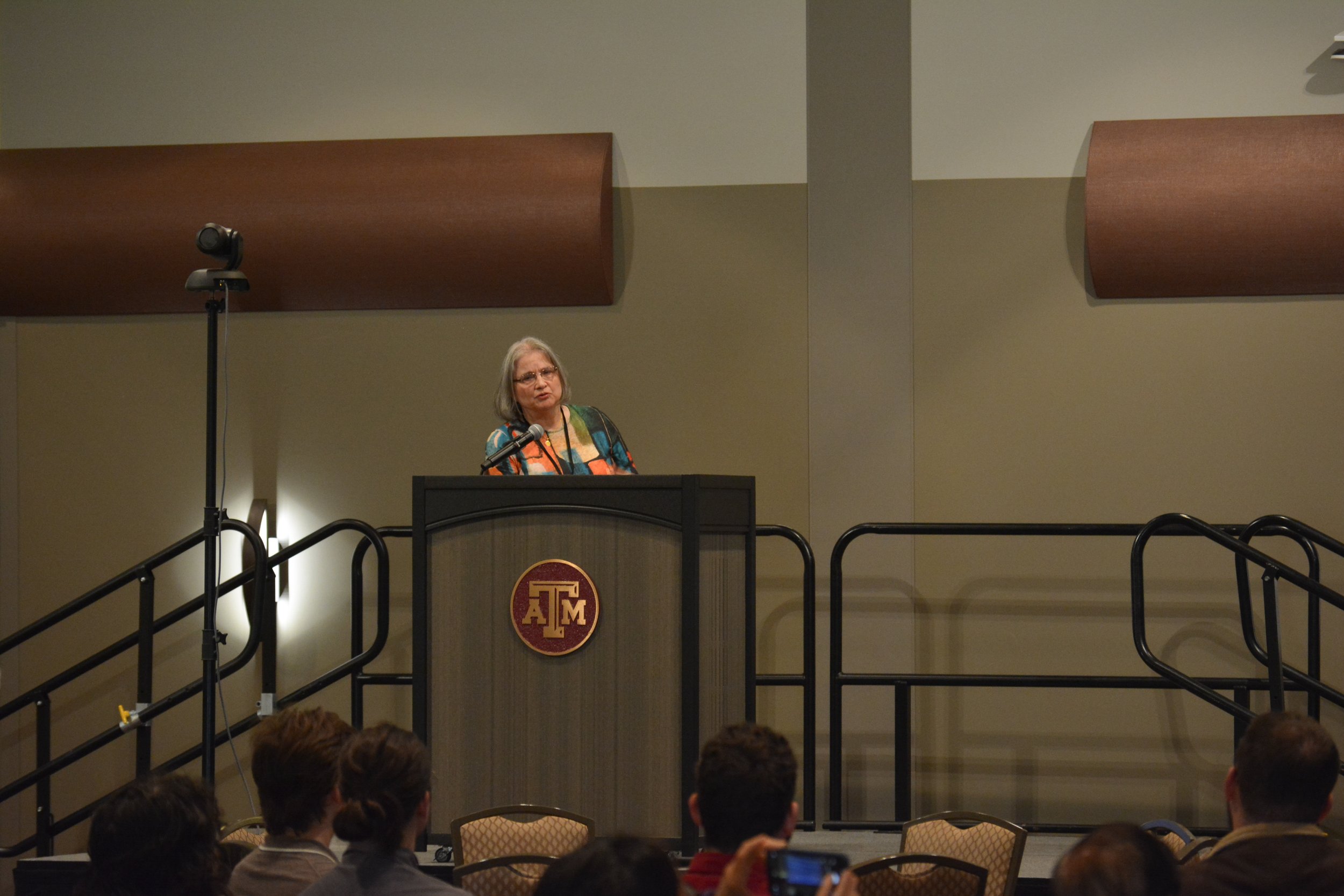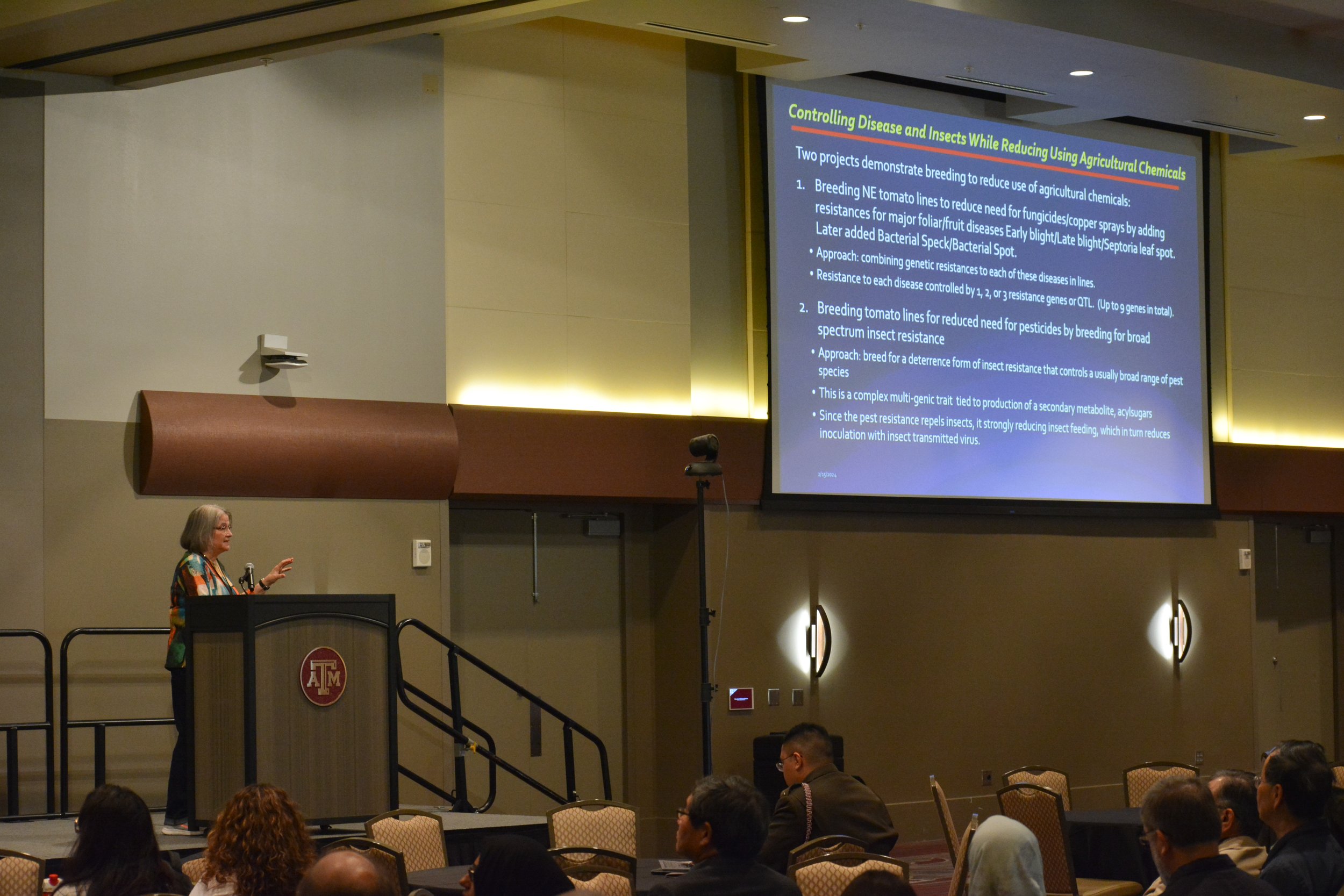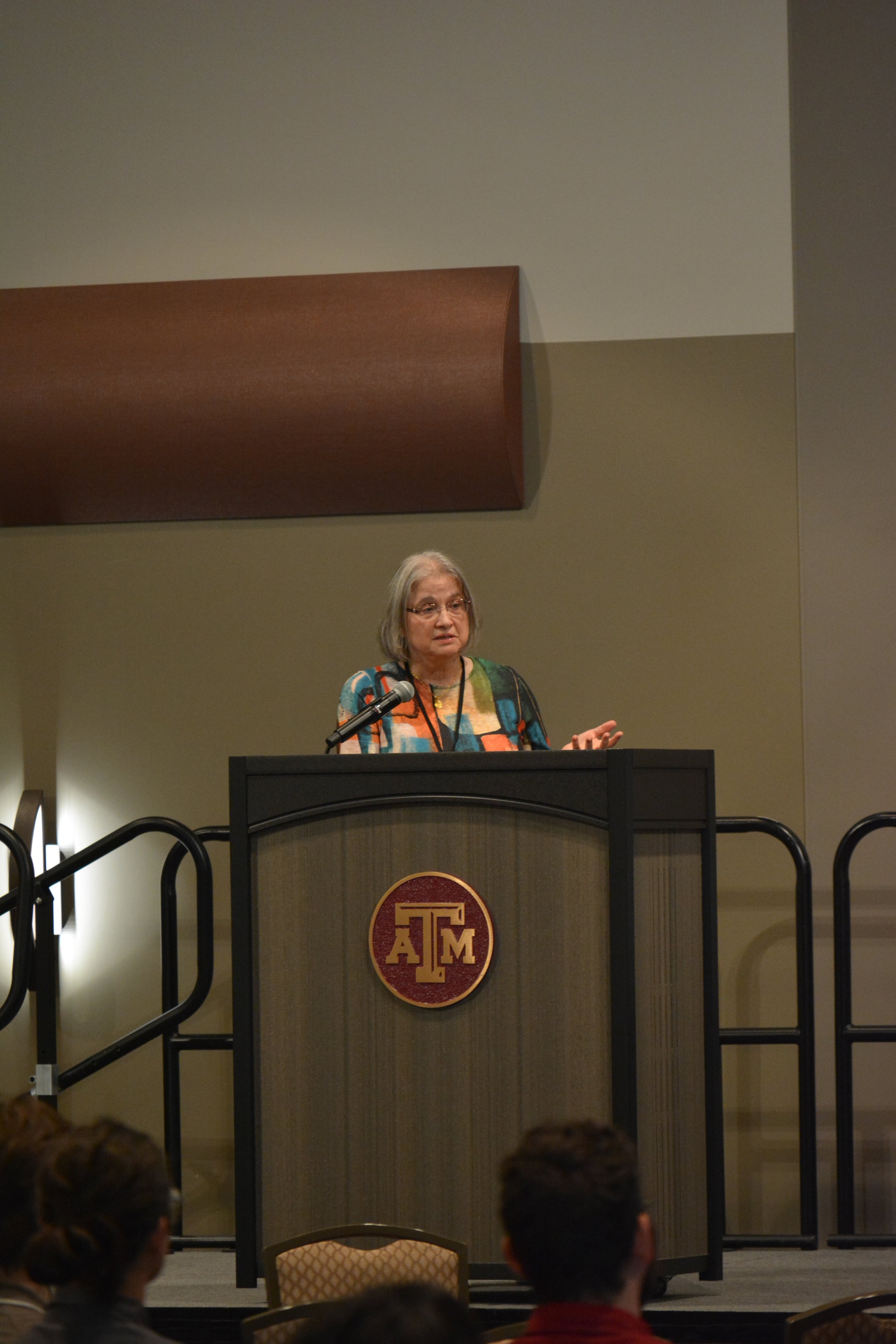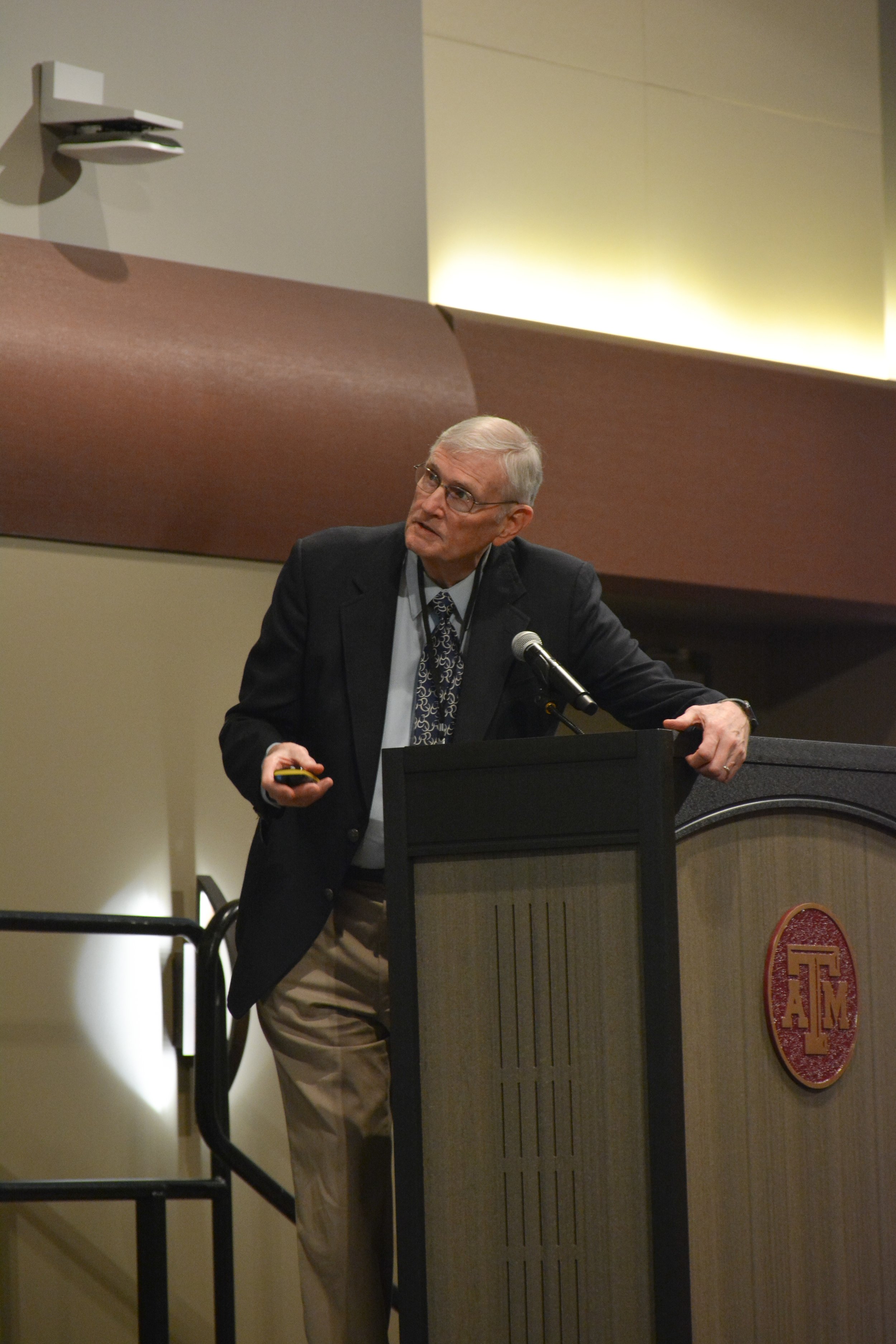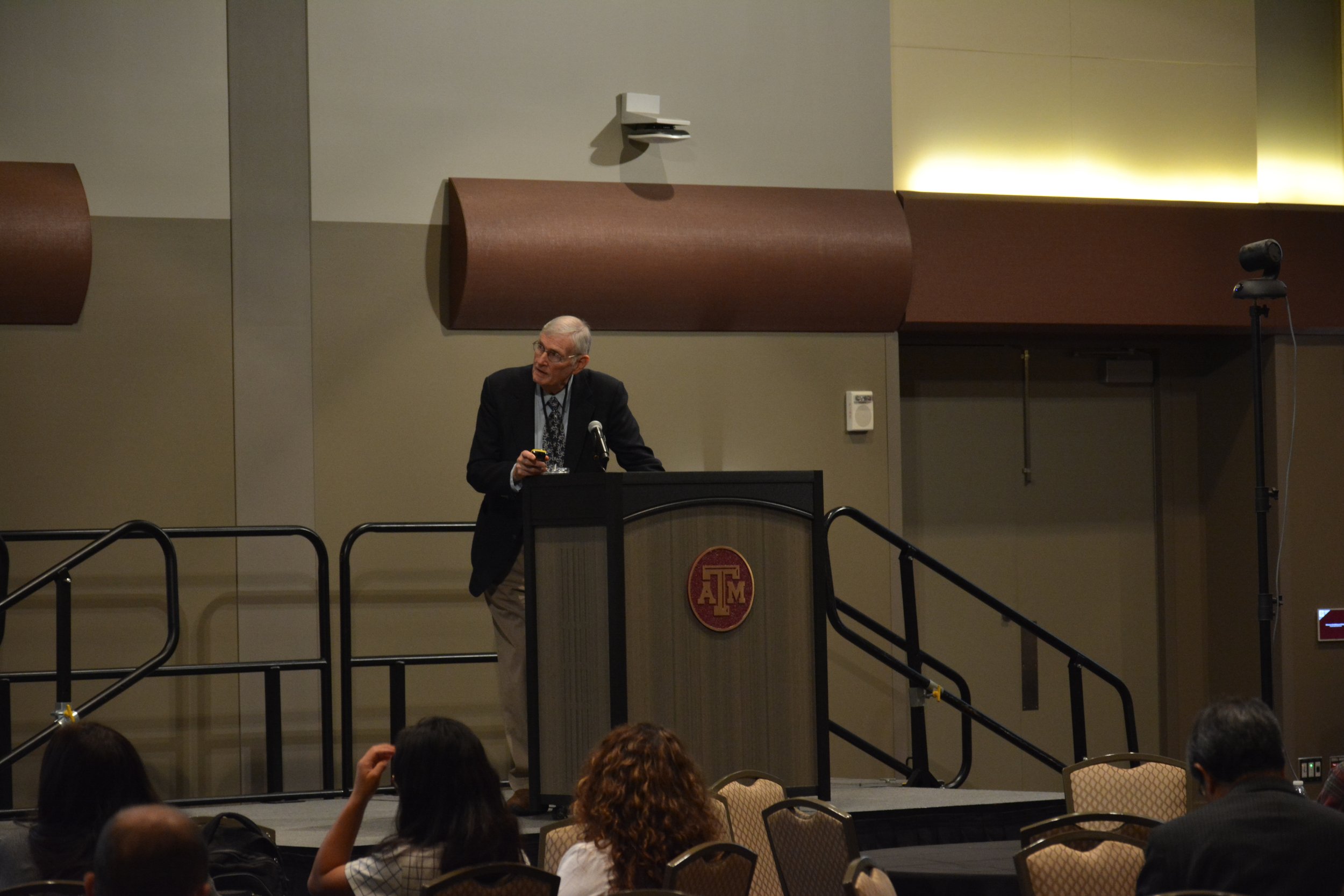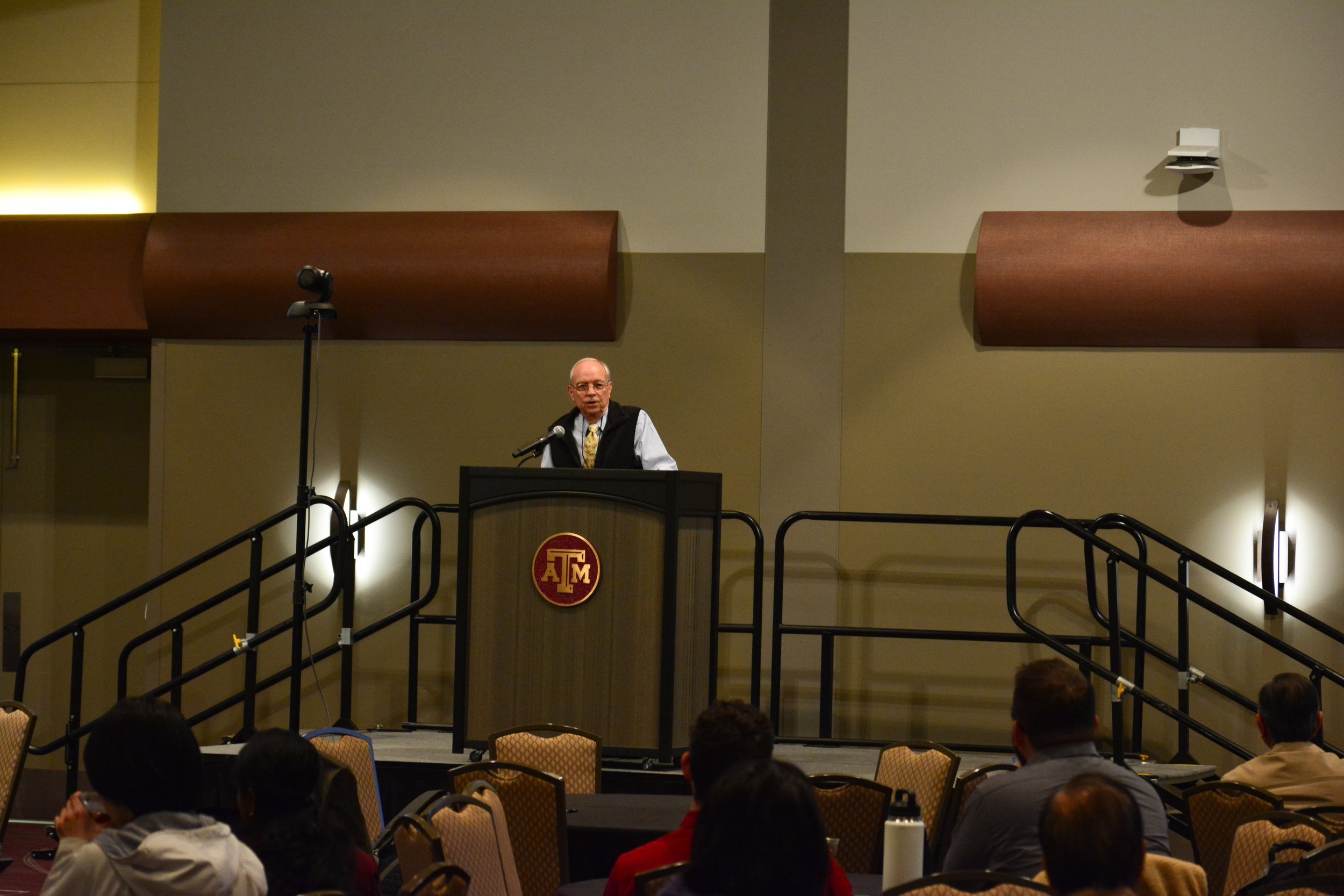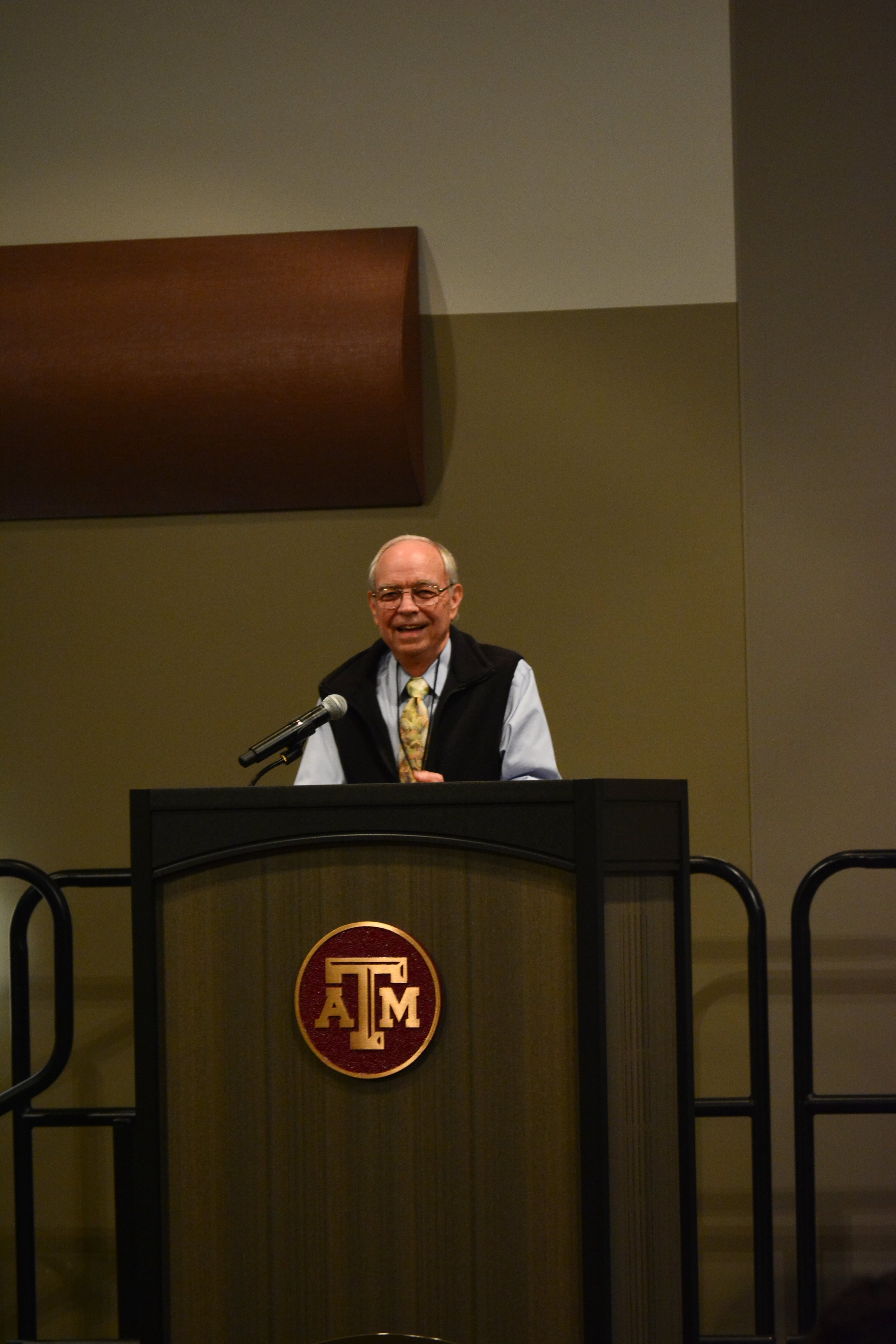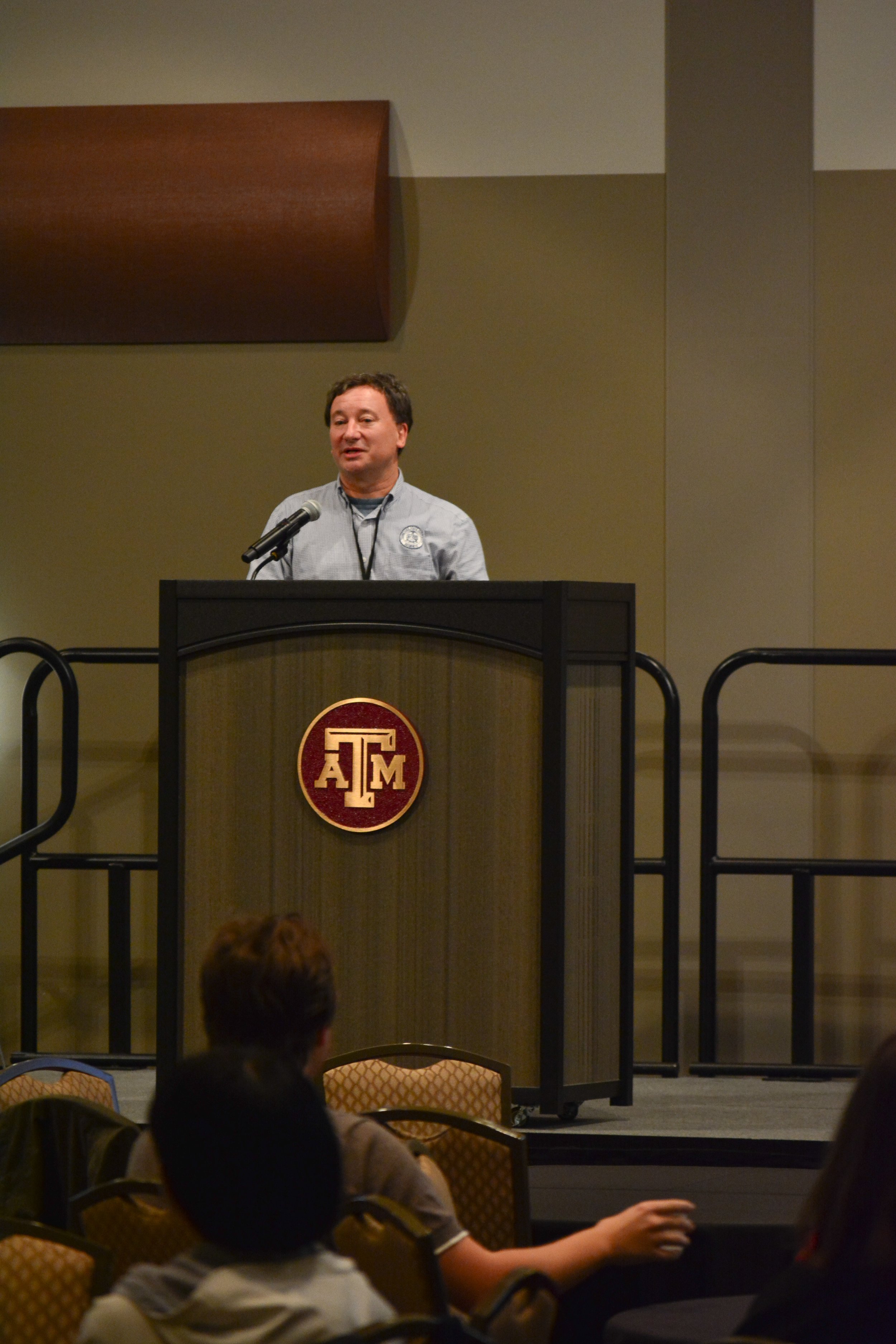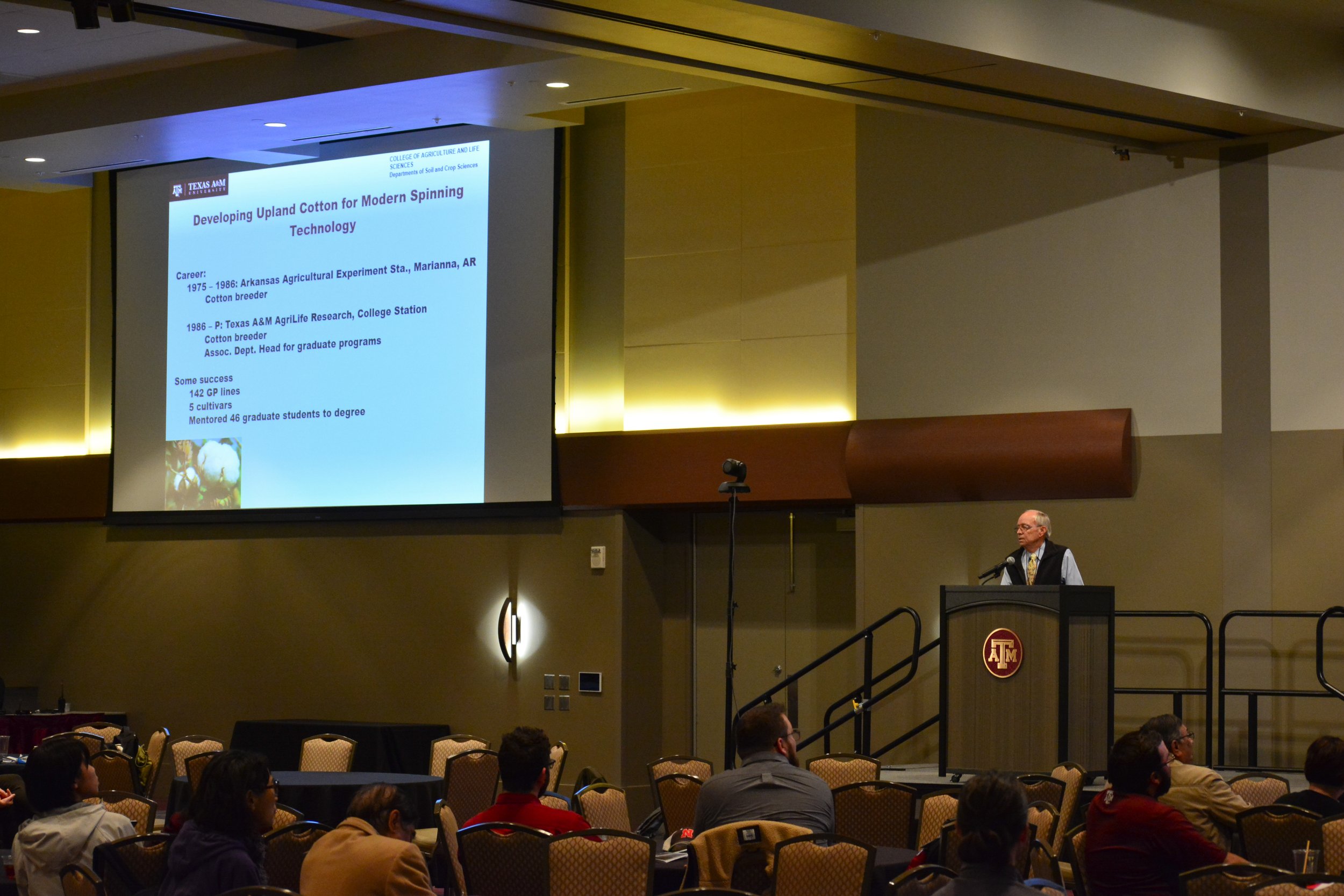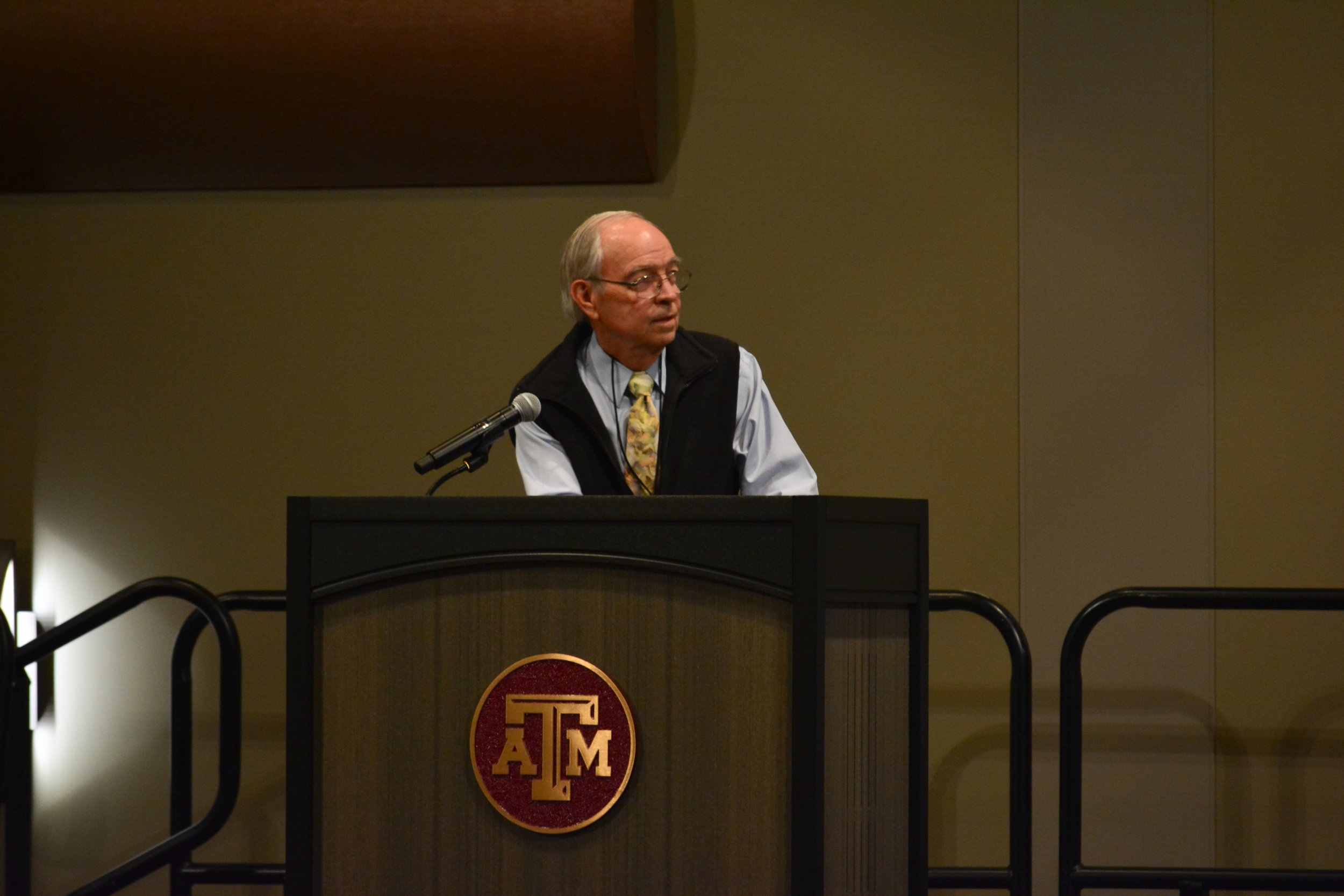2024: Seeding Sustainability
The theme for the 10th Texas A&M Plant Breeding symposium is "Seeding Sustainability." We will highlight research and breeding efforts on climate resilient crops, yield improvement, improved biotic stress tolerance, developing bio-fortified crop and more!
Keynote Speakers
Dr. LAURA MAYOR- Corteva
Laura Mayor is the Global Sorghum Breeding Lead for Corteva Agrisciences. She earned a Ph.D. in Plant Breeding from Iowa State University, an MS in Genetics, and BS in Agronomy from the University of Rosario in Argentina. She joined Pioneer HiBred as a Molecular Breeding Scientist in maize in 2008, and in 2011 she transitioned to sorghum to establish and deploy a molecular breeding strategy for this crop. In 2013, she became the sorghum breeder at the Manhattan, Kansas research center. In 2016, her responsibilities were extended to Evaluation Zone lead for eastern Kansas and the US High Plains sorghum markets, including Kansas and the Texas panhandle. In 2020, she began her current role focused on delivering elite sorghum hybrids to growers around the globe. She was named Corteva Laureate in 2021 as one of the company's singular experts. In addition, she is Division Chair for the Crop Breeding and Genetics (C1), Crop Science Society of America. Dr. Mayor is also Chair of the Sorghum Improvement Conference of North America (SICNA).
Title: Increasing genetic gain in sorghum under challenging environments
Dr.Martha Mutschler- Chu - Cornell University
Martha A. Mutschler-Chu attained her M.S. (1977) and Ph.D. (1979) in Plant Breeding/Plant Genetics from University of Wisconsin-Madison, working on breeding for bean seed protein quality. She started work as assistant professor of Plant Breeding at Cornell University 1979 and has continued to date as a full professor. During this period, she worked on fresh market tomato with a focus on breeding for control of biotic stresses that limit tomato production or harm fruit quality including insects and insect transmitted viral diseases and a range of fungal, oomycete, and bacterial diseases. The overarching goal across these biological stresses is to substantially reduce the use of pesticides and fungicides for insect and disease control. She has also worked on long-day onions, developing doubled haploid onions in collaboration with Dr. E. Earle and on resistance to Botrytis leaf blight.
Title: Breeding for Disease and Pest Resistance, and Reduction in Use of Agricultural Chemicals
Dr. Matthew W. Blair - Tennessee State University
Dr. Matthew W. Blair is a Plant Breeder and Research Associate Professor at Tennessee State University (TSU) in Nashville, Tennessee where he conducts breeding and genetics projects on legumes and dicotyledonous C4 crop plants such as cultivated amaranth. The plant genetics program goals of Dr. Blair’ lab are to have a major impact on the productivity of small-holder agriculture in the USA and internationally. The laboratory applies molecular biology research to cultivar and crop development, uses various agronomic and physiological testing techniques and plant breeding to improve crop and agronomic management in the interests of resource poor farmers. His collaborative projects have focused on nutritional traits on different crops (amaranth, common bean, cowpea and mung bean) genomics and abiotic stress tolerance (drought and aluminum toxicity) breeding of common beans. He has published nearly 200 refereed publications, 75 non-refereed publications, over 15 book chapters, 120,000 Genbank entries and 4 Crop registrations in US and International journals. He is currently the president of the Amaranth Institute and collaborates with multiple Latin American, African, Asian, European and US research groups as well as national agricultural research programs and regional networks for common bean and cowpeas.
Title: Genomics and Phenomics for Diversity Assessment and Breeding of Grain Amaranths in the United States and Overseas
Dr. Ross Welch - USDA-ARS
Dr. Welch was a plant physiologist and Lead Scientist employed at the USDA-ARS, Robert W. Holley Research Center for Agriculture and Health, located at Cornell University, Ithaca, NY until his retirement. He was also a Professor (Courtesy) in the Section of Soil and Crop Sci, School of Integrative Plant Sciences at Cornell Un. His research was directed at improving the nutritional quality and safety of food crops for humans using sustainable food-based system approaches. He was also interested in improving the nutritional quality and increasing health promoting substances (e.g., selenium, vitamin E, ascorbate) in fruits, nuts, and vegetables, and in developing holistic food system solutions to malnutrition globally. Reducing the accumulation of toxic heavy metals (e.g., Cd) in edible seeds and grains was also a research focus of his. He had cooperative international research programs with colleagues in Australia, Bangladesh, India, Nepal, Egypt, and Turkey. He also cooperated with several CGIAR Centers including IFPRI, CIAT, CIMMY, CIP and IRRI on a global project (HarvestPlus) directed at increasing the micronutrient (iron, zinc, iodine, selenium, provitamin A carotenoids) density of staple plant foods (i.e., rice, wheat, maize, beans, potato, sweet potato, and cassava) through plant breeding and genetic modification to enhance human health globally. He has published over 200 refereed journal publications.. He is a Fellow of the Am. Soc. of Agronomy and the Soil Sci. Soc. of Am. He served as an Expert China Review Team member for HarvestPlus. He is in the Science Hall of Fame (USDA-ARS) inducted in 2014 and promoted to Federal Government Super-grade, 2006. He was honored by the Brazilian Biofortification Team for being the “father” of biofortification at a ceremony in Brazil, June 2009.
Title: Why agriculture? Using Agriculture as a Tool for Better Nutrition and Health
Dr. Wayne Smith – Texas A&M University
Dr. Wayne Smith is a Professor and Associate Department Head of the Soil and Crop Sciences Department at Texas A&M university. His current research activities center around improvement of fiber quality that will expand the product portfolio of upland cotton. Dr. Smith has developed or co-developed and released 142 germplasm lines and 5 cultivars of upland cotton with improved traits such as yield potential, earliness of maturity, host plant resistance to whitefly, nematode, fleahopper, fusarium wilt and morphological traits such as smooth stems and leaves, okra leaf, glandless, sub-okra leaf, improved fiber length, improved fiber bundle strength, and elevated condensed tannin content. He developed and released the first Extra Long Staple Upland germplasm since the 1940s and probably the first extra long staple upland germplasm without pima introgression. Dr. Smith recently developed and released germplasm lines with improved fiber bundle strength exceeding all current non-acala cultivars in the United States. He has published 139 refereed journal publications, 11 book chapters, 1 book as an author, four books as co-editor, and participated in over 200 professional presentations. Dr. Smith has served on numerous National, University, College, and Departmental committees: Chair for USDA-ARS Crop Germplasm Committee, CSSA Crop Registration Subcommittee, CSSA Editor-in-chief, president National Association of Plant Breeders, and President of the USDA Plant Breeding Coordinating Committee. During his long career he received numerous awards and honors for his outstanding research.
Title: Upland Cotton for the Future







